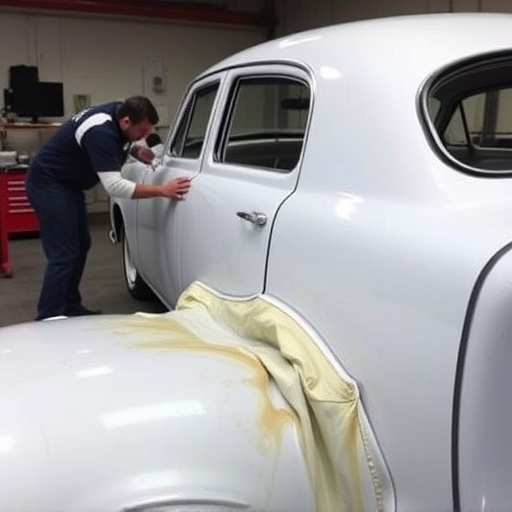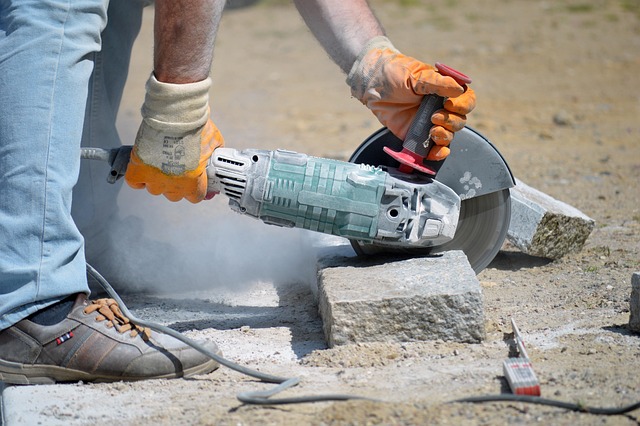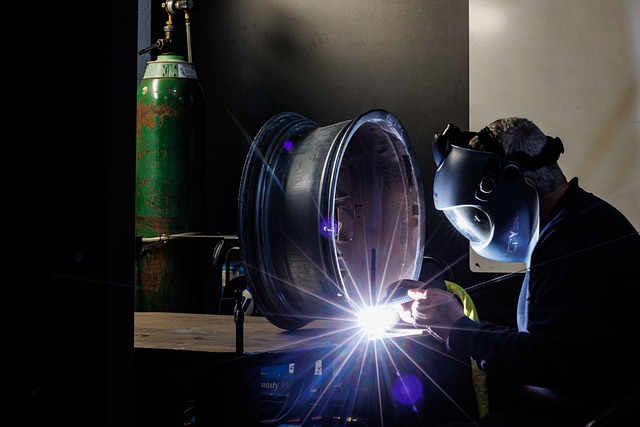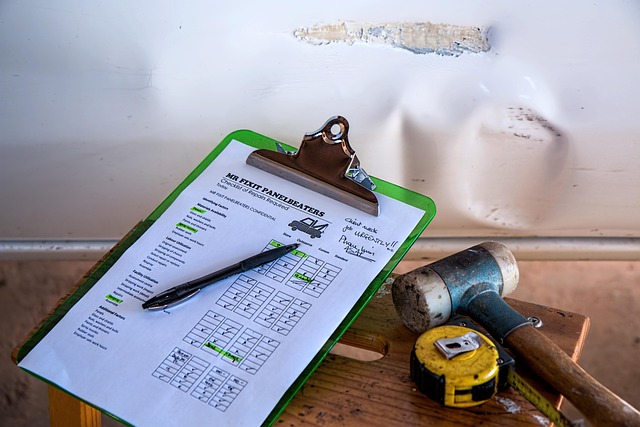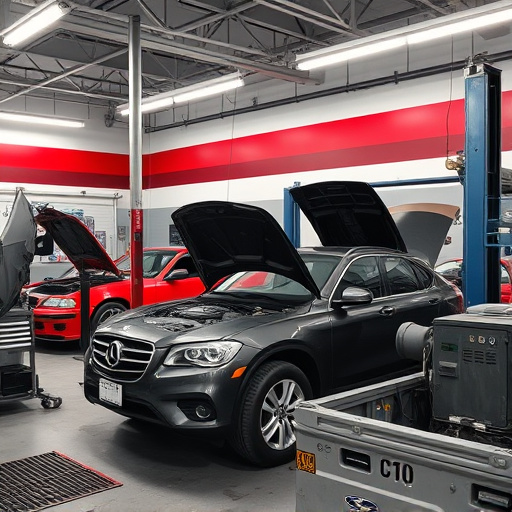Post-repair road testing is crucial for auto body repair shops, especially for complex jobs like Mercedes-Benz frame repairs. Rigorous testing in real-world conditions ensures structural integrity, safety features, and optimal performance, addressing potential missed issues. This meticulous process builds customer trust by confirming their vehicle's reliability and safety, leading to enhanced satisfaction, repeat business, and a positive reputation in a competitive market.
Post-repair road testing is a vital step in ensuring customer satisfaction and building trust. This critical process validates that repairs meet expectations, enhancing confidence in your service. This article delves into the essential aspects of post-repair road testing, guiding you through understanding its importance, implementing effective procedures, and measuring success to foster strong customer relationships. By following best practices, you can revolutionize your repair process and stand out in a competitive market.
- Understanding the Importance of Post-Repair Road Testing
- Implementing Effective Post-Repair Road Test Procedures
- Measuring Success and Building Customer Trust
Understanding the Importance of Post-Repair Road Testing

Post-repair road testing is a crucial step in the vehicle body repair process that often gets overlooked. It’s more than just a quality check; it’s a powerful tool to rebuild customer trust and satisfaction. When a car undergoes complex repairs, such as auto frame repair on a Mercedes-Benz, the real-world performance becomes critical. Customers expect their vehicles to handle, perform, and look like new after repairs.
By simulating actual driving conditions through post-repair road testing, mechanics can identify any subtle issues that might have been missed in the workshop. This ensures not just structural integrity but also optimal handling dynamics, safety features, and aesthetic appeal—essential factors for a seamless driving experience. Such rigorous testing enhances customer confidence, assuring them that their vehicle is ready to face the road again with reliability and safety.
Implementing Effective Post-Repair Road Test Procedures
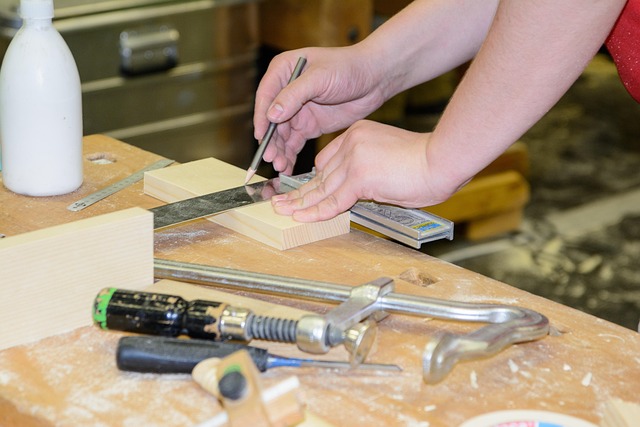
Implementing effective post-repair road test procedures is a cornerstone in rebuilding customer confidence after any auto body restoration or Mercedes Benz repair. These tests go beyond simply checking mechanical functionality; they validate the quality of workmanship and ensure the vehicle meets safety standards. A comprehensive road test should include both routine performance checks and specific scenario simulations to assess how the repaired vehicle behaves under different conditions.
For instance, in the case of a Mercedes Benz repair, the test might involve accelerating from a stop, engaging the brakes at varying speeds, navigating tight corners, and evaluating handling dynamics. Additionally, checking for any unusual noises, vibration, or fluid leaks during these maneuvers is crucial. By incorporating such detailed testing procedures, auto body restoration shops can confidently assure customers that their vehicles are ready to return to the road, fostering trust and satisfaction.
Measuring Success and Building Customer Trust

Measuring Success and Building Customer Trust is a vital component of post-repair road testing. By implementing structured evaluation methods, collision centers can ensure that repairs meet or exceed industry standards. This involves detailed inspections, test drives, and customer feedback collection. Through these processes, auto body painting and dent repair services are verified to be both functional and aesthetically pleasing. Successful outcomes not only confirm the center’s technical proficiency but also serve as a strong foundation for building trust with customers.
In the context of a collision center, gaining and retaining customer confidence is paramount. Positive experiences during post-repair road testing foster a reputation for excellence, encouraging repeat business and referrals. Satisfied customers become brand advocates, promoting the center’s reliability and craftsmanship. This, in turn, strengthens the relationship between the business and its clientele, ensuring long-term loyalty and continued success in a competitive market.
Post-repair road testing is not just a quality control measure; it’s a powerful tool to rebuild customer confidence. By implementing rigorous test procedures, businesses can ensure vehicle reliability and deliver an exceptional experience. Through measurable success, this process fosters trust, encourages repeat business, and solidifies a company’s reputation for excellence in automotive repairs.
